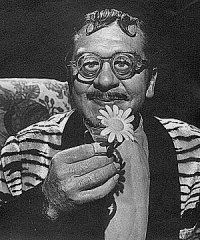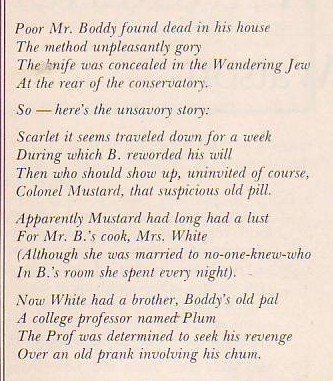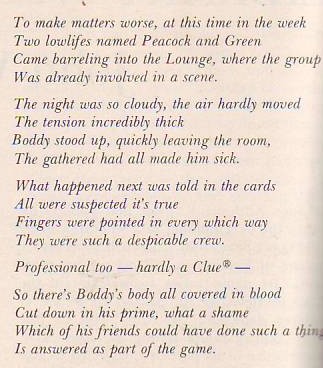Here's three readings of poems that I think you'll like. The first is a Paul McCartney poem, "Maxwell's Silver Hammer" (above). Of course that was a Beatles song, but Paul wants it to be remembered as a poem as well as a song, and for good reason...it sounds good to the ear, even when it's spoken.
John Lenon hated this song, which he regarded as one of Paul's "granny" poems. He called it "fruity." I disagree. Paul was fascinated with the English ability to abstract macabre crimes and make them seem somehow cute. The English are a sentimental people, and Paul thought that was worth noting in a song and a poem. He was right.
Anyway, give a listen and try to regard the lyrics as poetry. Here's (below) a print version of the opening:
Joan was quizzical; studied pataphysical
Sci-ence in the home.
Late nights all a-lone with a test tube; Oh,
Oh, oh, oh.
Here's (above) a reading of W. H. Auden's "Stop All the Clocks." Auden dispenses with overt poetic flourish (or wants us to think he does) and speaks plainly and sincerely about the death of a friend. It's very touching.
Here's (above) a dramatic reading of a real breakup letter. It's poetry of a sort, though you only think of it that way when you hear it read the proper way, as it is here. This would be a hit at a poetry reading!
Above, an unannounced bonus!




 GLURG! GLURG! GLURG! GLURG!
GLURG! GLURG! GLURG! GLURG! "I'm JOYFULLY INSANE...insane with...with..."
"I'm JOYFULLY INSANE...insane with...with..." GLURGGLURGGLURGGLURGGLURG!!!!!
GLURGGLURGGLURGGLURGGLURG!!!!! "...INSANE with KISSING your TENDER FEET!"
"...INSANE with KISSING your TENDER FEET!"
 "DONE!"
"DONE!" "Whew!"
"Whew!" "Now for my reward! I think I've earned a little nip!"
"Now for my reward! I think I've earned a little nip!"









